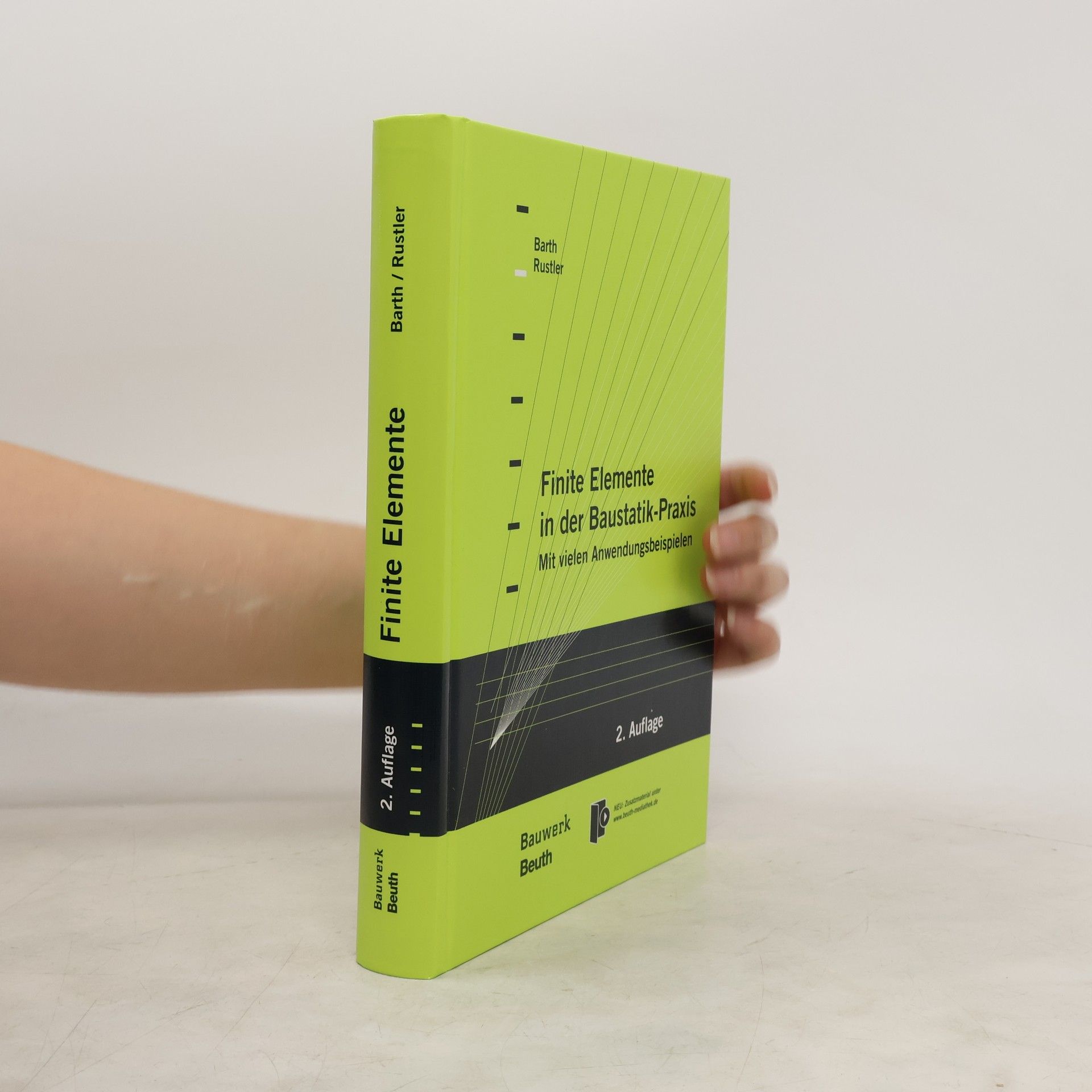The narrative centers around a skilled killer who displays an exceptional understanding of chemistry, using specific conditions—heat, moisture, darkness, and acidity—to meticulously eliminate evidence after committing murders. The insights come from John Divel of the Ocean City Police Department, who reflects on the chilling precision of the crime scene. This intriguing blend of forensic science and criminal investigation sets the stage for a gripping exploration of a complex case.
Christian Barth Book order (chronological)






Die Finite Elemente Methode (FEM) hat sich durch ihre Universalität und Allgemeingültigkeit auch im Bauwesen fest etabliert. Ein statisches System in ein FE-Programm einzugeben, ist in der Regel ziemlich leicht. Dies täuscht jedoch häufig darüber hinweg, dass fundierte Kenntnisse bezüglich der Theoriehintergründe und der verwendeten Software unerlässlich sind. Alle sechs Kapitel der Vorauflage wurden komplett überarbeitet und an die aktuellen Normen angepasst. Neu hinzugekommen ist das Kapitel 7 'Eigenwertlösungen', das u. a. die Stabilitätsanalyse, die Dynamische Analyse und die Antwortspektrenmethode behandelt. Bei allen Kapiteln stehen die FE- Modellierungen mit zahlreichen Anwendungsbeispielen im Vordergrund. Aus dem Inhalt: Grundlagen zur Finite-Elemente-Methode // Vom realen Bauwerk zum FE- Modell // Fehlerquellen bei Finite-Elemente-Lösungen // Modellierung von Unterzügen // Lagerbedingungen // Bodenmodelle // Eigenwertlösungen. In der Beuth-Mediathek stehen alle Beispiele sowie Testversionen der FE-Programme RFEM und RSTAB zum kostenlosen Download bereit.
Die neue Trendsportart auf dem Wasser heißt SUP: Stand Up Paddling! Für diese neue Dimension des Surfens werden weder Wind noch Welle benötigt, sie kann sowohl auf Küstengewässern als auch auf heimischen Seen und Flüssen praktiziert werden. Aktive jeden Alters feiern beim SUP schnell erste Erfolge. Dieses Handbuch richtet sich an Einsteiger aller Altersstufen, die mit SUP in die faszinierende Welt des Wassersports einsteigen wollen, aber auch an interessierte Wassersportler, die im SUP eine optimale Alternative zur Überbrückung windarmer Zeiten finden, sowie an Sportler, die ein effektives Fitnesstraining und Ganzkörper-Work-out wollen. Step-by-step-Fotos und Zeichnungen zeigen, wie’s richtig geht.
Objectivity and the Language-Dependence of Thought
A Transcendental Defence of Universal Lingualism
- 258 pages
- 10 hours of reading
Exploring the relationship between thought and language, this work challenges the prevailing view that thought is independent of language. It presents a philosophical argument advocating for the universal dependence of language on thought, drawing on insights from influential philosophers Donald Davidson and Robert Brandom. The book engages with contemporary discussions in psychology and ethology, offering a unique perspective on the cognitive aspects of language and thought.
Die Musik. Menschen, Instrumente und Ereignisse in Bildern und Dokumenten
- 255 pages
- 9 hours of reading
Die Musik
- 255 pages
- 9 hours of reading
DAS KAMASUTRAM, das altindische Lehrbuch der Liebeskunst, war eine Sensation, als es das erste Mal in Europa bekannt wurde.Hier wird mit ungewöhnlichem Freimut das uralte Thema abgehandelt, das seit Adam und Eva nichts von seiner Aktualität verloren hat. In den weltberühmten Lehrwerken der erotischen Dichtung Indiens wurden die Lehren des KAMASUTRAM mit orientalischer Fabulierfreude in das Gewand von Märchen und Geschichten gekleidet. Verwegene Phantasie, drastische Volkstümlichkeit und vergnügliche Ironie kennzeichnen diese erotischen Sittenbilder, die hier zum Teil erstmalig in deutscher Sprache veröffentlicht werden.
